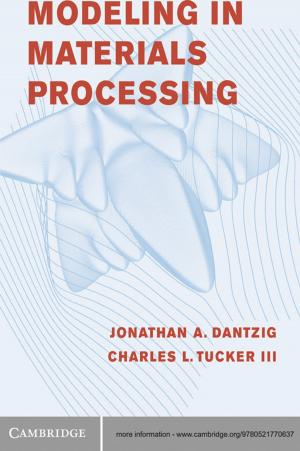| Author: | E. J. Hinch | ISBN: | 9781139930116 |
| Publisher: | Cambridge University Press | Publication: | October 25, 1991 |
| Imprint: | Cambridge University Press | Language: | English |
| Author: | E. J. Hinch |
| ISBN: | 9781139930116 |
| Publisher: | Cambridge University Press |
| Publication: | October 25, 1991 |
| Imprint: | Cambridge University Press |
| Language: | English |
Perturbation methods are one of the fundamental tools used by all applied mathematicians and theoretical physicists. In this book, the author has managed to present the theory and techniques underlying such methods in a manner which will give the text wide appeal to students from a broad range of disciplines. Asymptotic expansions, strained coordinates and multiple scales are illustrated by copious use of examples drawn from all areas of applied mathematics and theoretical physics. The philosophy adopted is that there is no single or best method for such problems, but that one may exploit the small parameter given some experience and understanding of similar perturbation problems. The author does not look to perturbation methods to give quantitative answers but rather to give a physical understanding of the subtle balances in a complex problem.
Perturbation methods are one of the fundamental tools used by all applied mathematicians and theoretical physicists. In this book, the author has managed to present the theory and techniques underlying such methods in a manner which will give the text wide appeal to students from a broad range of disciplines. Asymptotic expansions, strained coordinates and multiple scales are illustrated by copious use of examples drawn from all areas of applied mathematics and theoretical physics. The philosophy adopted is that there is no single or best method for such problems, but that one may exploit the small parameter given some experience and understanding of similar perturbation problems. The author does not look to perturbation methods to give quantitative answers but rather to give a physical understanding of the subtle balances in a complex problem.















